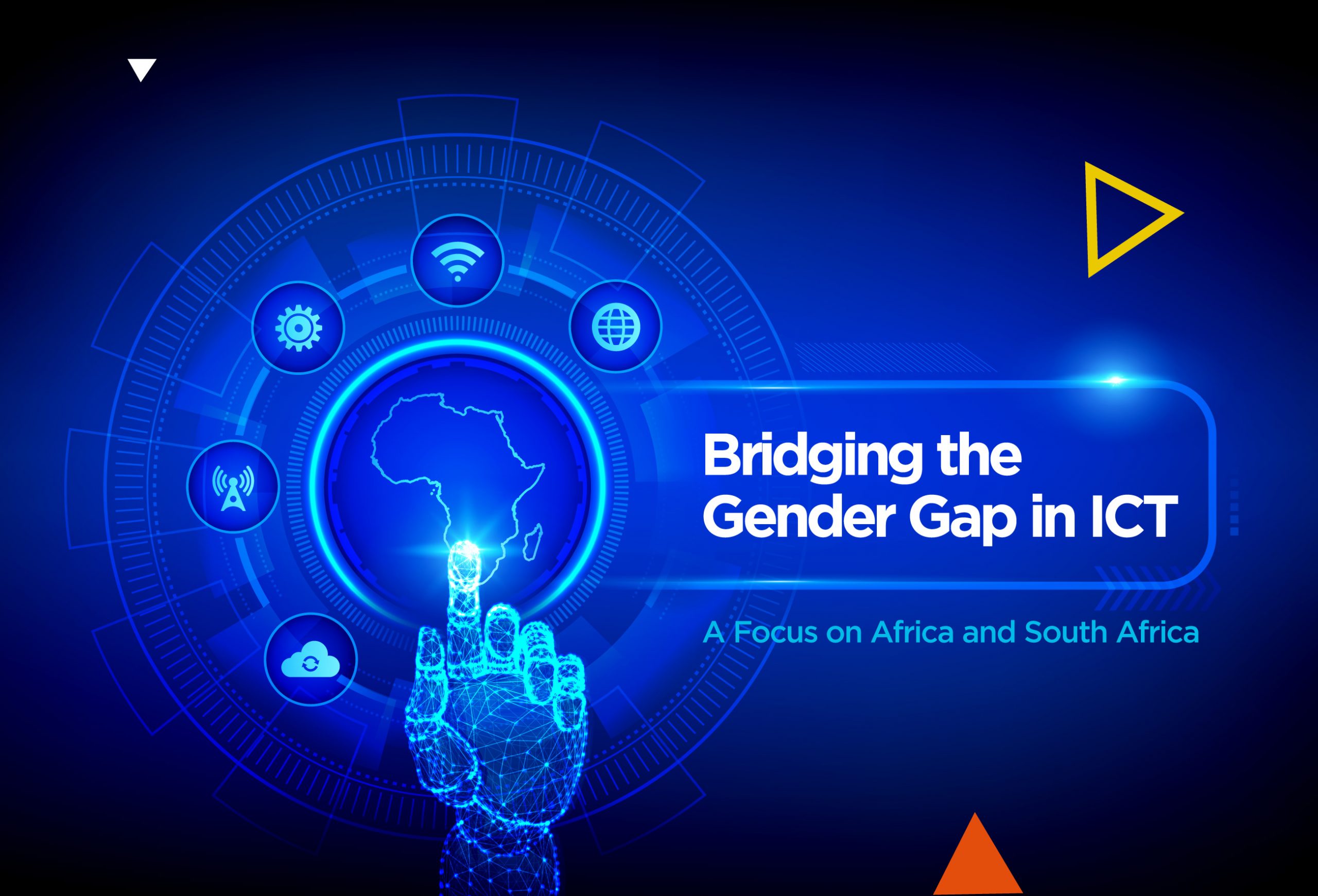The Information and Communication Technology (ICT) sector is a critical component of the global economy, driving innovation and facilitating connectivity across continents.
However, a closer examination reveals a persistent challenge: the significant underrepresentation of women within this field. This gender gap is particularly pronounced in Africa and South Africa, where it not only reflects global trends but is also amplified by unique regional barriers.
This article explores the status quo of gender diversity in the tech industry, shedding light on the statistics, trends, and various initiatives aimed at enhancing female participation in ICT from grassroots educational efforts to professional development and leadership.
The Current Landscape in Africa and South Africa
Despite progress in various sectors, the ICT field in Africa, and South Africa remains largely male-dominated.
A report by the African Development Bank on jobs and economic transformation notes that women are significantly underrepresented in science, technology, engineering, and mathematics (STEM) fields across the continent.
In South Africa, women hold less than 25% of tech jobs, a statistic that mirrors global trends but is further exacerbated by local challenges such as access to education and socio-economic factors.
Why the Gap Exists
The reasons behind the gender gap in ICT in Africa and South Africa are multi-faceted, including:
- Socio-economic Barriers: High levels of poverty, limited access to quality education, and lack of resources disproportionately affect women and girls, hindering their pursuit of careers in technology.
- Cultural Norms and Stereotypes: Prevailing stereotypes and cultural expectations often discourage women from entering ‘male-dominated’ fields like ICT, perpetuating a cycle of underrepresentation.
- Limited Role Models and Mentorship: The scarcity of visible female leaders in technology means fewer role models and mentors for aspiring young women, impacting their career aspirations and opportunities in ICT.
Signs of Change
Despite these obstacles, there are encouraging signs of progress:
- Rising Awareness: There’s increasing recognition of the value of gender diversity in technology, not only for equity but for driving innovation and economic growth in Africa and South Africa.
- Growth of Women in Tech Initiatives: Numerous initiatives aimed at supporting women in technology are gaining momentum, from community-driven groups to international partnerships.
- Government and Corporate Action: Policies and programmes specifically targeting the inclusion of women in the ICT sector are being implemented, with a focus on education, training, and employment opportunities.
Initiatives and Policies to Narrow the Gap
Efforts to bridge the gender gap in ICT in Africa and South Africa are as diverse as they are impactful. These range from educational programmes aimed at young girls to policies and partnerships designed to foster female leadership in technology.
Educational Programmes and Scholarships
- Technology Camps and Coding Workshops: Initiatives like Africa Teen Geeks in South Africa focus on teaching coding and computer science to young girls, sparking interest in ICT from an early age.
- STEM Scholarships for Women: Scholarships specifically designed for African women pursuing STEM degrees are becoming more common, offered by universities and organisations alike to support higher education and career development in technology fields.
Corporate Diversity Efforts and Mentorship
- Diversity and Inclusion Policies: Companies across Africa are increasingly implementing policies aimed at recruiting, retaining, and promoting women within their tech departments and leadership roles.
- Mentorship and Networking: Programmes providing mentorship, networking opportunities, and professional development for women in tech are critical for career advancement and retention in the ICT sector.
Government and International Support
- Legislative Measures and Policies: Governments in Africa, including South Africa, are enacting policies to promote gender equality in the tech workforce, ranging from gender quotas to funding for women-led tech startups.
- International Partnerships: Global initiatives like the EQUALS Global Partnership involve collaboration between countries, including African nations, to promote gender equality in the digital age through advocacy, policy, and direct action.
The Way Forward
Achieving gender equality in ICT in Africa and South Africa demands a comprehensive approach, addressing not only the barriers women face in entering the tech field but also the systemic issues that limit their advancement and retention. Key strategies include:
- Enhancing Access to Education: Providing girls and young women with access to quality education and resources in STEM fields is foundational.
- Building Supportive Ecosystems: Creating environments that support women’s participation and advancement in ICT through policies, community support, and workplace initiatives.
- Promoting Female Leadership: Encouraging and supporting women to take on leadership roles within the ICT sector can inspire future generations and reshape the industry landscape.
Conclusion
Bridging the gender gap in ICT in Africa and South Africa is not merely a question of fairness or equality but a necessity for economic development and technological innovation.
Through targeted initiatives, policies, and programmes, and by fostering an inclusive culture that celebrates diversity, we can pave the way for a more equitable, dynamic, and prosperous digital future for all.
FAQs
What is the current percentage of women in tech-related roles globally?
Women occupy only 22% of AI and technology-related roles worldwide.
How do societal and cultural norms affect the gender gap in ICT?
Societal and cultural norms stereotype tech fields as ‘male-dominated’, deterring women from pursuing tech careers and contributing to the gender gap.
What are some initiatives aimed at encouraging young girls to pursue careers in tech?
Initiatives like Girls Who Code and scholarships from organisations such as the Society of Women Engineers aim to inspire and support young girls in pursuing tech careers.
How are corporations contributing to bridging the gender gap in ICT?
Corporations are implementing diversity policies, mentorship programs, and leadership development initiatives to support women in tech.
What role do government policies play in promoting gender equality in the tech industry?
Government policies, including gender quotas and funding for women-led startups, play a key role in promoting gender equality in tech.
Discover more about ICT
Explore the ICT landscape in Africa and South Africa, bridging the gender gap and envisioning the future of women in technology. Dive into these insightful articles:
- Discover how we’re bridging the gender gap in ICT with a focus on Africa and South Africa.
- Peek into the promising future of women in ICT.
- Learn how students are overcoming barriers and chasing success in the ICT industry.
- Witness the digital revolution reshaping South Africa with ICT and digital transformation. Join the revolution now!
- Understand the essence of ICT in education and its paramount importance. Embark on the educational journey towards a digital future.






